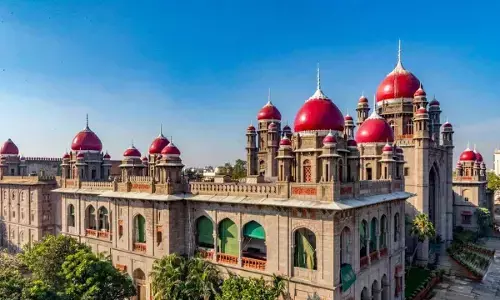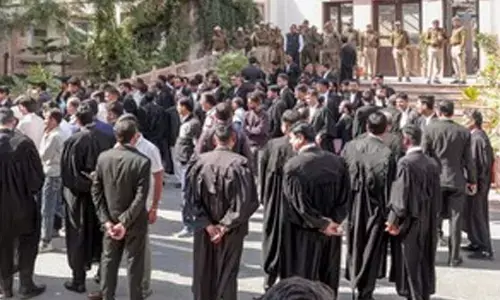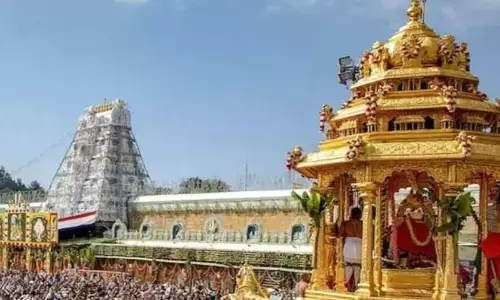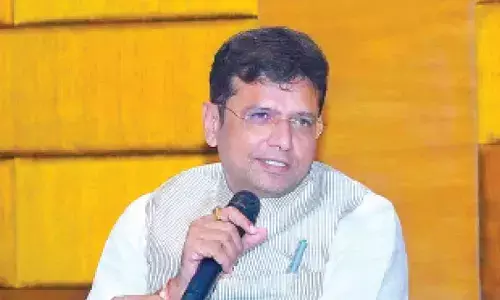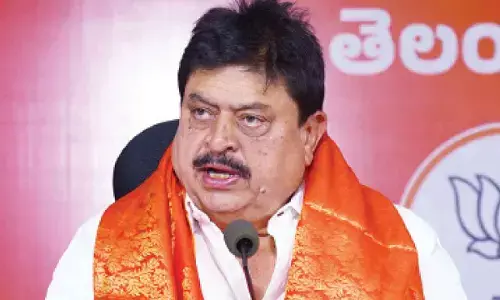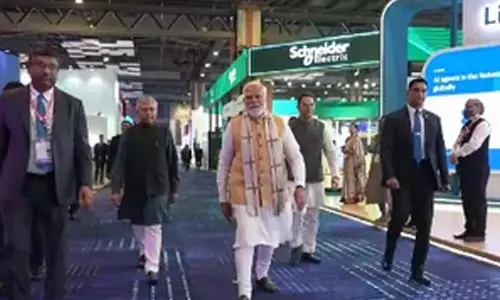A socio-economic and political message comes across loud and clear from Bihar
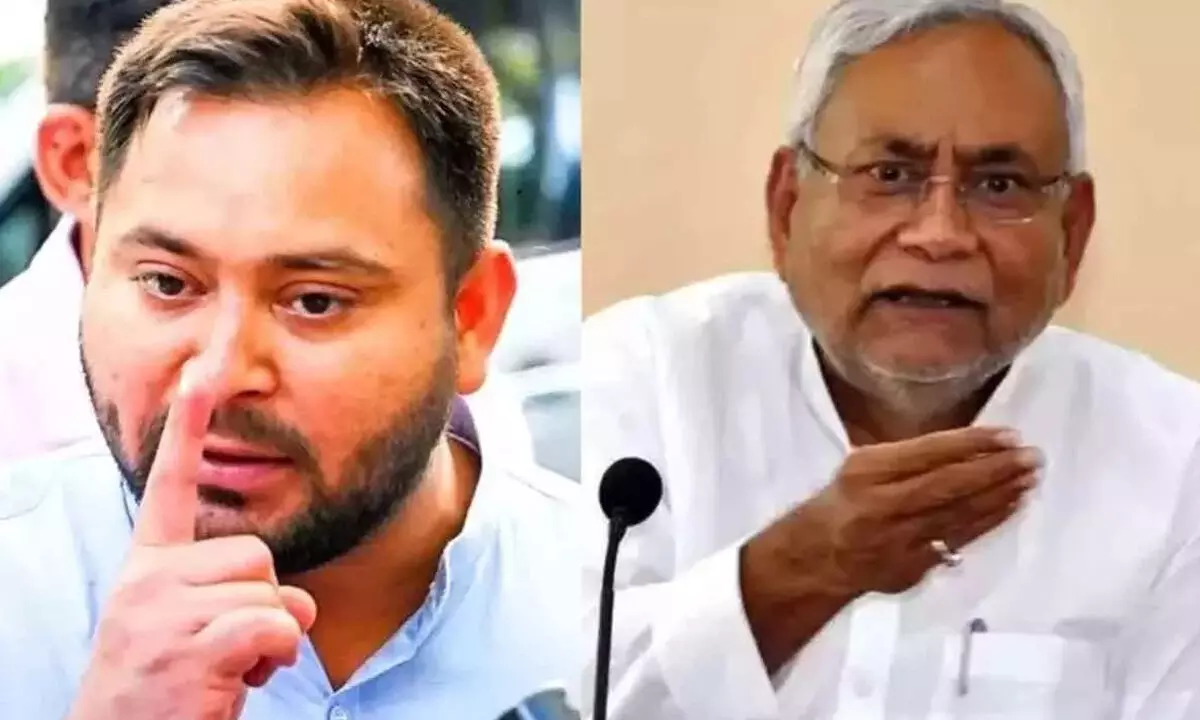
Bihar needs to work day in and day out to metamorphose its health-education infrastructure
It was perhaps for the first time that a state as diverse as Bihar witnessed a slew of socio-economic and political issues that formed the kernel of campaigning during the recentLok Sabha elections in the state, where 40 seats were at stake. Health, education, need for creating more job opportunities for the youth, rural development and zero-vacancy policy for the government sector were some of the key issues, which not only grabbed people’s attention but also dominated the campaign.
In Bihar, all children complete their primary education but its gross enrolment ratio (GER) in higher education is only 17.1 per cent, as per the report of All India Survey on Higher Education (AISHE) 2021-22.
Leader of Opposition in the State Assembly Tejashwi Yadav, also a prominent face of the Rashtriya Janata Dal (RJD), spoke about the need to increase the annual intake of government engineering colleges and polytechnic institutes, which is currently 13,835 and 16,245, respectively, while the number of M.Tech seats is only 240.
Tejashwi, even his rivals admit in private conversation, not only fought the election valiantly but also changed the course of political discourse, veering around the idea of composite inclusivity where no one is left behind. His party secured 22.14 per cent votes in the Lok Sabha polls as compared to 20.52 per cent of BJP and 18.52 per cent of the Janata Dal United (JDU) but could win only four seats – Jehanabad, Patliputra, Buxar and Aurangabad.
Its ally Congress won three seats – Sasaram, Kishanganj and Katihar, CPI-ML two – Arrah and Karakat, while Purnea went to Congress rebel Rajesh Ranjan, alias Pappu Yadav. The BJP and the JDU won 12 Lok Sabha seats each. Obviously, the RJD and its allies lost many seats by not being able to get four to five per cent extra votes, which
gives any party the winning edge in a highly competitive electoral battle.
Had the BJP and the JDU fought separately, the RJD would have almost swept this Parliamentary election.
As a regional party, the RJD under Tejashwi has transformed a lot in recent years, which is a welcome sign as the dynamics of politics in the state have also undergone a sea-change since 1990s, though the larger contour of social justice as a dominating force remains intact.
Tejashwi has been able to diversify the party’s support base and the state’s political narrative as well by effectively bringing up the issues of jobs, health, education, law and order, inclusivity, et al in the realm of electoral discourse. Apart from filling up decade-old vacancies in government departments, he rightly vouched for creating newer avenues for jobs in the private sector for the youths of rural areas.
None will disagree with the fact that Bihar needs to work day in and day out to metamorphose its health-education infrastructure – right from primary to tertiary level – to further speed up its multifaceted growth pace.
During his 17-month association with Chief Minister Nitish Kumar as a partner in the government, Tejashwi impressed the state’s people in general and the youth in particular in terms of delivery against his promises, which even surprised his rivals. However, electoral strategies of a party must not only revolve around the core issues of development but should also take note of social realities and people’s evolving political mood and aspirations.
In the case of Bihar, SCs, OBCs, EBCs and minorities are the biggest vote banks. For multiple reasons, they do not turn out in large numbers to cast their votes. The upper caste and politically more assertive voters from SCs, OBCs and EBCs usually register a higher percentage of voting in every election.
As things stand today, the RJD gets only a miniscule percentage of upper caste votes. Their votes go either to the BJP or the JDU en bloc barring a few pockets where the high caste RJD candidates are popular among their people. Its major votes come from minorities, OBCs, SCs and EBCs but a chunk of them also went to the JDU in the recent Lok Sabha polls. EBCs, as per Bihar government’s caste-based survey 2022 report, released on October 2, 2023, account for 36.01 per cent of the state’s 13.07 crore population. OBCs and EBCs together account for 63 per cent of total population of the state.
Given the electoral significance of EBCs, Tejashwi made a correct strategic move by joining hands with Mukesh Sahani, founder president of the VikassheelInsaan Party (VIP), and currently a vocal voice of social justice in the state. Together, they addressed at least 250 political meetings braving both heat wave and resource crunch. Sahni’s VIP fought on three seats – East Champaran, Gopalganj, and Jhanjharpur but could not win any of them.
Though the VIP still does not have a mesmerizing influence over its core vote bank – EBCs, the party is fast gaining a foothold among them. Therefore, the RJD should not bank upon its ally for shifting EBCs into its fold in totality, for which the party will have to work hard a bit more in galvanizing them.
It is only they who will significantly make up the critical gap in votes the RJD gets, bringing the party much closer to poll victory. It is not that EBCs do not vote for the RJD but the party needs more votes from them. At the same time, the RJD should not take the votes of OBCs, SCs and minorities for granted.
As political churning is raising a new set of assertions among deprived communities, a prompt political response to them should always be a part of its electoral planning. The neo rich among them are strongly committed to the idea of social justice and inclusive empowerment but they often fall prey to allurements. They need to be cautioned.


